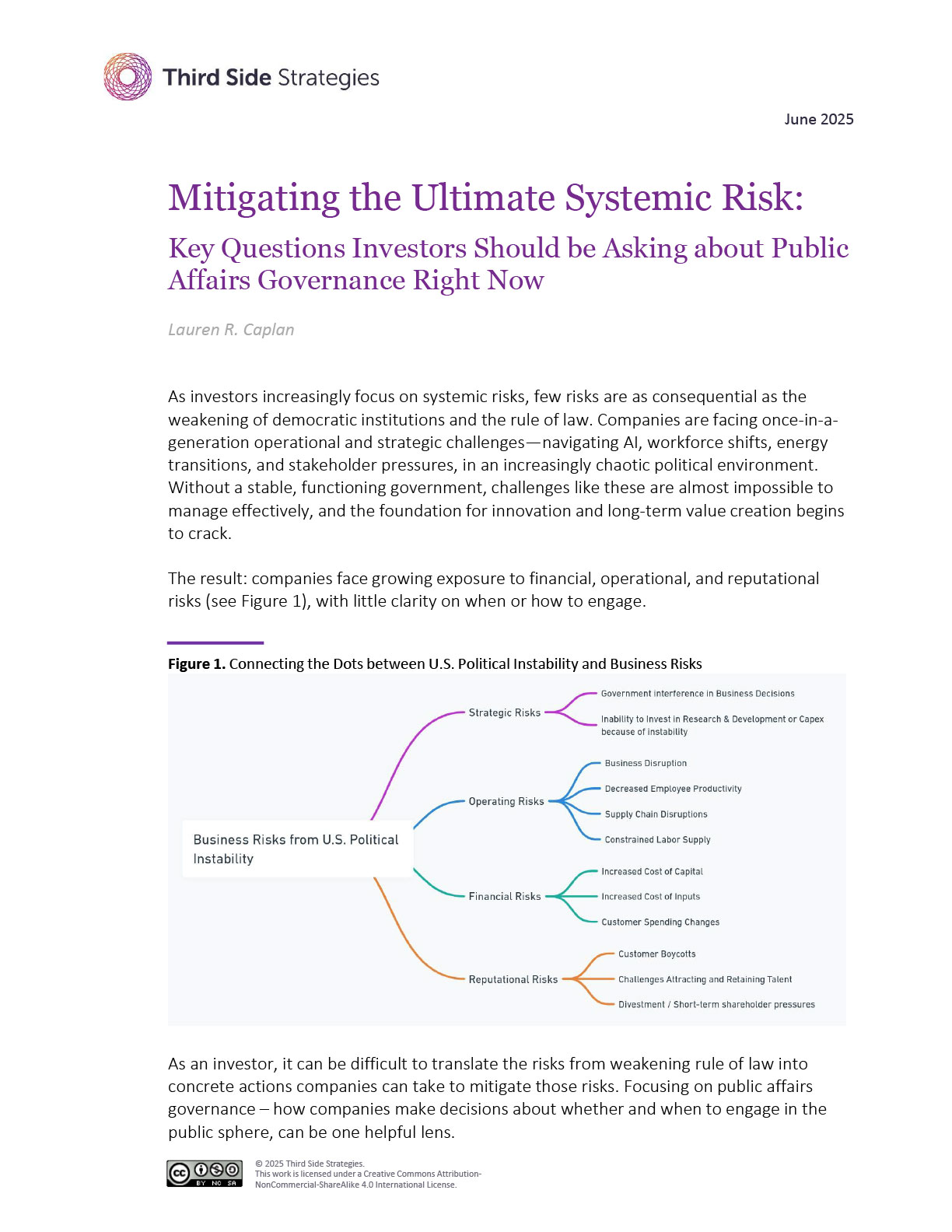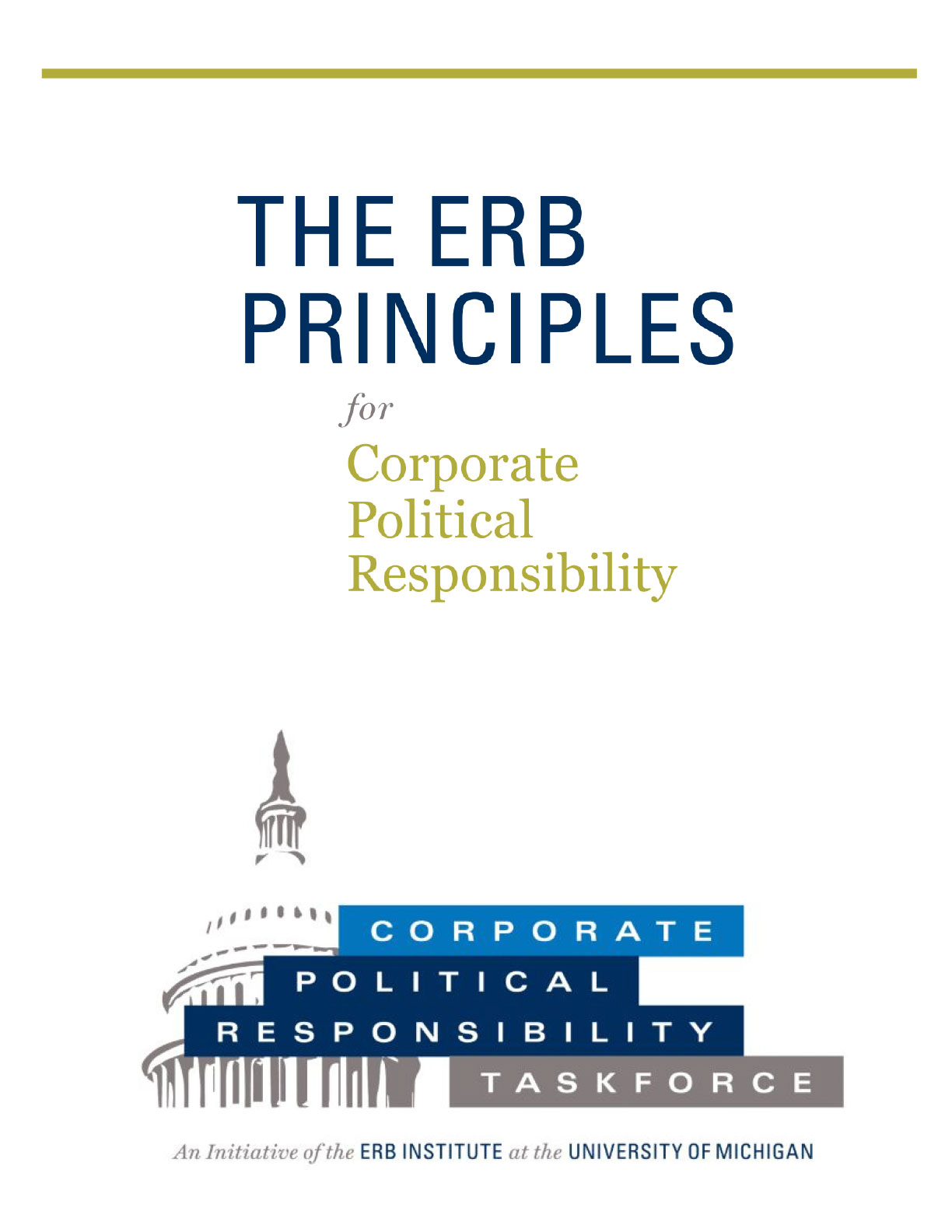Do you have a resource to recommend for The CPR Hub? Please reach out and we will review it for future updates!

Mitigating the Ultimate Systemic Risk: Key Questions Investors Should be Asking about Public Affairs Governance Right Now
As investors increasingly focus on systemic risks, few risks are as consequential as the weakening of democratic institutions and the rule of law -- or today’s once-in-a-generation operational and strategic challenges from AI, an increasingly chaotic political environment, and more. Yet, as an investor, it can be difficult to translate these systemic risks into concrete actions. Focusing on public affairs governance – how companies make decisions about whether and when to engage in the public sphere, can be one helpful lens.
This new tool from Third Side Strategies helps investors to ask sharper questions—of companies and of themselves. It introduces the concept of CPR Governance (a set of best practices for whether and when to engage in the public sphere) which helps investors in two ways: (i) prompting companies to think more concretely about their public affairs practices and strengthen any areas of weakness highlighted by the questions, and (ii) providing investors the information needed to more effectively manage this systemic risk across their portfolio.


